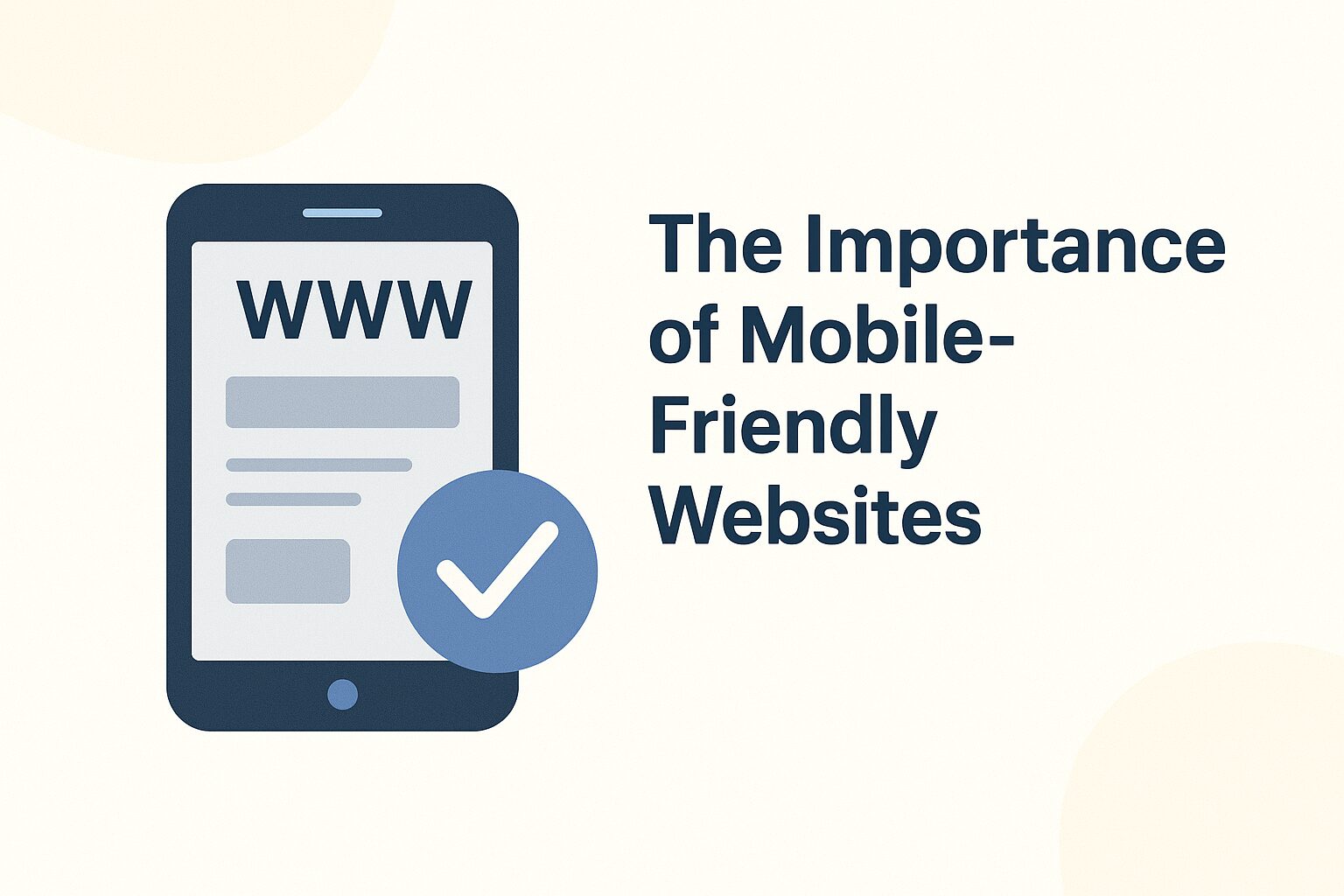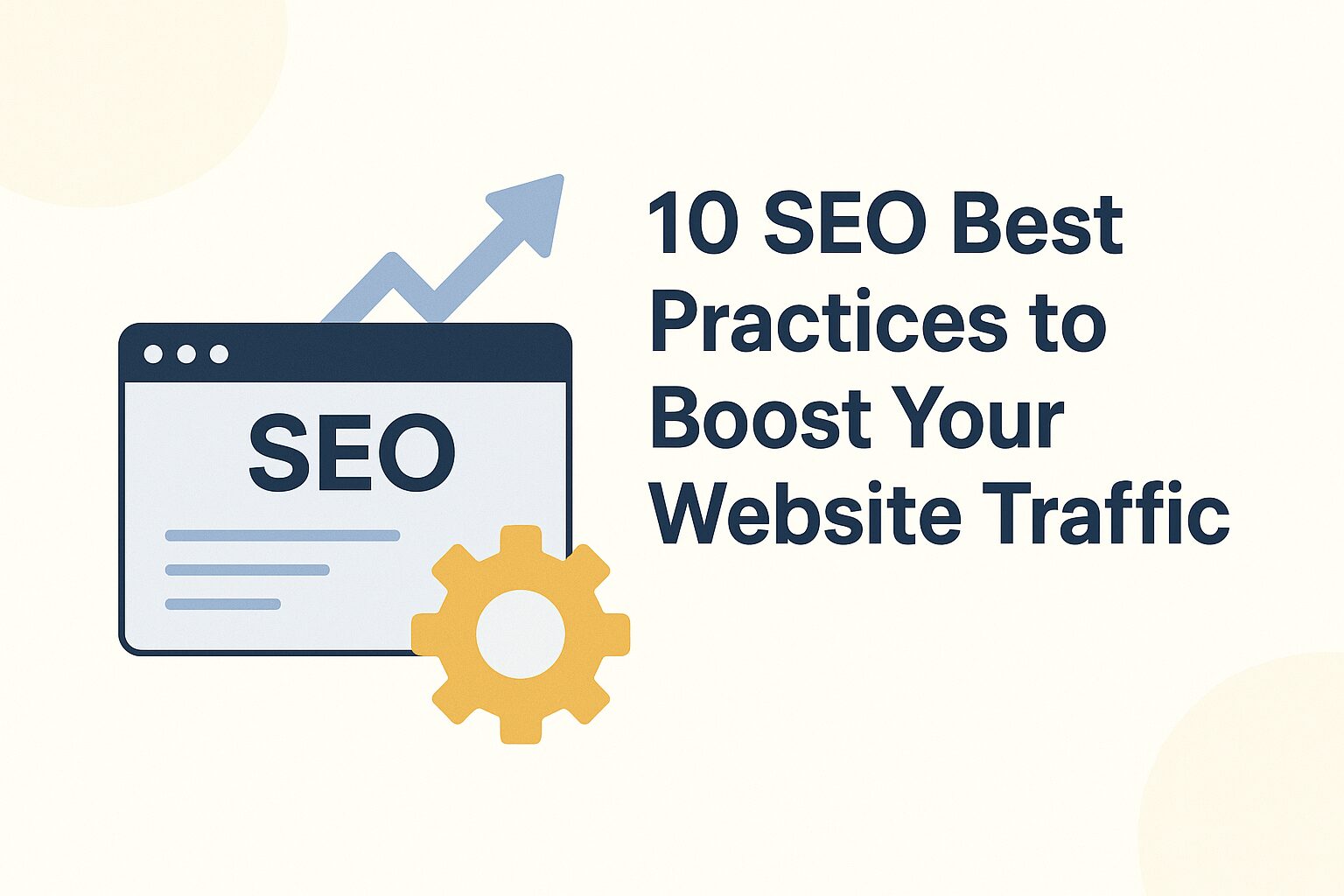In today’s digital-first world, the competition for online visibility is tougher than ever. Whether you’re a small business owner, an e-commerce entrepreneur, or a content creator building your personal brand, the question remains the same: how do you get your website noticed among millions of competitors?
The answer lies in Search Engine Optimization (SEO) a powerful strategy that can help your business appear at the very top of Google, Bing, and other search engines. If you’ve ever wondered why certain websites consistently rank higher than others, it’s not by accident. They’re using SEO strategically to attract traffic, build trust, and generate sales.
In this in-depth guide, we’ll cover everything you need to know about SEO: what it is, why it matters, the main types of SEO, how it impacts your business, and practical steps you can take today to leverage it for growth.
What Is SEO?
SEO (Search Engine Optimization) is the process of optimizing your website so that it ranks higher in search engine results pages (SERPs) when users search for relevant keywords.
Think of search engines as digital librarians. Every time someone types in a query, the search engine’s job is to find the most relevant, high-quality, and trustworthy information available. SEO is how you make sure your website stands out to these “digital librarians.”
For example:
- If you run a bakery in London, SEO helps you show up when people search for “best bakery in London” or “fresh croissants near me.”
- If you’re an online fitness coach, SEO ensures you appear for searches like “online personal trainer” or “best home workout plans.”
By optimizing your site for search engines, you’re essentially placing your business in front of people who are actively looking for what you offer.
Why SEO Matters for Your Business
SEO isn’t just about rankings, it’s about visibility, credibility, and long-term business growth. Let’s break down why SEO is critical in 2025:
1. Increased Online Visibility
Studies show that over 90% of users never go beyond the first page of Google search results. If your website isn’t there, you’re essentially invisible to potential customers. SEO ensures your site gets discovered by the right audience.
2. Cost-Effective Marketing
Unlike paid advertising, where you need to spend money every time someone clicks your ad, SEO generates organic traffic. Once your site ranks well, it continues to attract visitors without ongoing ad spend.
3. Builds Trust and Credibility
Users tend to trust websites that appear on the first page of search engines. High rankings act as a signal of authority and credibility. With strong SEO, you position your business as an industry leader.
4. Better User Experience
Google’s algorithms reward websites that offer a great user experience. That means faster load times, mobile-friendly design, and high-quality, well-structured content. Investing in SEO naturally improves your site for your visitors.
5. Long-Term Business Growth
Paid ads stop working the moment you stop paying. SEO, on the other hand, is a long-term investment. With consistent optimization, your site can continue generating traffic and leads for years.
Key Elements of SEO
SEO isn’t a single strategy it’s a combination of multiple techniques that work together. Here are the four main pillars of SEO:
1. Keyword Research
Keywords are the foundation of SEO. They’re the exact words and phrases your target audience types into search engines.
- Short-tail keywords: Broad searches like “bakery London.”
- Long-tail keywords: More specific searches like “gluten-free bakery in East London.”
Using the right keywords allows you to target people with clear intent. For example:
- A law firm could use “best divorce lawyer in Chicago.”
- An e-commerce brand might target “affordable eco-friendly clothing online.”
Tools for keyword research include Google Keyword Planner, SEMRush, and Ubersuggest.
2. On-Page SEO
On-page SEO involves optimizing the content and structure of your website so both users and search engines can understand it easily.
- Meta titles & descriptions: Concise summaries with keywords.
- Header tags (H1, H2, H3): Organized content structure.
- Keyword placement: Naturally included within the text.
- Internal linking: Linking to other relevant pages on your site.
For instance, if you own a travel blog, an optimized post about “best places to visit in Italy” might include related internal links to “Italian food guide” or “Rome travel tips.”
3. Technical SEO
Technical SEO focuses on the backend structure of your website to ensure it runs smoothly and is easy for search engines to crawl.
Key factors include:
- Site speed (fast-loading pages).
- Mobile optimization (responsive design).
- HTTPS security.
- XML sitemaps & clean URLs.
Think of technical SEO as the foundation of your house. Without a solid structure, no matter how beautiful your content is, your website won’t perform well.
4. Off-Page SEO
Off-page SEO is about building your website’s authority and credibility through external signals. The most important factor here is backlinks — links from other websites pointing to your site.
Backlinks act as “votes of confidence.” The more high-quality websites linking to yours, the more trustworthy your site appears to search engines.
Other off-page strategies include:
- Guest blogging.
- Social media signals.
- Brand mentions on forums or review sites.
How SEO Impacts Different Types of Businesses
Let’s look at some real-world examples of how SEO can transform businesses in various industries:
Local Businesses
A dentist in New York can use local SEO to rank for “best dentist near me” or “affordable dental care NYC.” Optimizing their Google Business Profile, collecting reviews, and adding location-based keywords can bring in steady new clients.
E-Commerce Stores
An online clothing store can appear for keywords like:
- “affordable women’s fashion online”
- “trendy men’s jackets 2025”
- “eco-friendly clothing brands”
This means more targeted visitors ready to buy — increasing sales without heavy ad spend.
Service Providers
A digital marketing agency can target “SEO services for small businesses” or “best PPC agency in London.” By ranking high for these terms, they attract high-intent leads.
Content Creators & Personal Brands
Bloggers, YouTubers, and influencers can use SEO to grow their audience. For example, a food blogger could optimize recipes for “easy vegan dinner recipes” or “quick keto breakfast ideas.”
Practical Steps to Get Started with SEO
Now that you know why SEO matters, here’s a step-by-step roadmap to help you start optimizing your website:
- Do Keyword Research
- Use tools like Google Keyword Planner, Ahrefs, or Ubersuggest.
- Focus on long-tail keywords for more targeted traffic.
- Optimize On-Page Content
- Write high-quality blog posts and landing pages.
- Include keywords naturally in headings, body text, and meta descriptions.
- Use bullet points, images, and videos to enhance readability.
- Improve Technical SEO
- Test your website speed with Google PageSpeed Insights.
- Ensure your site is mobile-friendly.
- Install SSL certificates for HTTPS security.
- Build Backlinks
- Guest post on reputable blogs in your industry.
- Share your content on social media to attract attention.
- Partner with influencers for mentions.
- Track and Measure Results
- Use Google Analytics and Google Search Console to track progress.
- Measure organic traffic, keyword rankings, and conversion rates.
- Adjust your strategy based on performance.
Common SEO Mistakes to Avoid
Many businesses fail at SEO because they overlook these key points:
- Keyword stuffing: Overloading your content with keywords can harm readability and rankings.
- Ignoring mobile optimization: Most users search from smartphones today.
- Skipping analytics: Without tracking, you won’t know what’s working.
- Poor content quality: Thin or duplicate content won’t rank well.
- Neglecting local SEO: If you serve a specific area, optimize for local searches.
The Future of SEO in 2025 and Beyond
SEO is constantly evolving, and staying ahead of trends is crucial. Here’s what to expect:
- AI-driven search engines: Tools like ChatGPT Search and Google’s AI Overviews are changing how results are displayed. Optimizing for AI search engines means creating clear, structured, and authoritative content.
- Voice search optimization: With smart speakers, more users are searching using conversational queries like “Where’s the best sushi near me?”
- E-E-A-T (Experience, Expertise, Authoritativeness, Trustworthiness): Google prioritizes content that demonstrates credibility and first-hand experience.
- Video SEO: Platforms like YouTube and TikTok are also search engines. Optimizing video titles, descriptions, and captions will be critical.
Final Thoughts: Why SEO Should Be Your Top Priority
SEO is not a luxury, it’s a necessity in today’s competitive digital landscape. By investing in keyword research, on-page optimization, technical improvements, and backlink building, you create a sustainable source of traffic, leads, and revenue.
Unlike paid ads that stop working once you turn them off, SEO continues to deliver long-term value. It builds trust, improves user experience, and establishes your brand as an authority in your industry.
If you’re serious about growing your online presence in 2025, SEO should be at the center of your digital marketing strategy. The sooner you start, the sooner you’ll see the results: more visibility, more customers, and more growth.
Frequently Asked Questions About SEO
1. How long does SEO take to show results?
SEO is a long-term strategy. On average, most businesses start seeing noticeable improvements in rankings and traffic within 3 to 6 months, depending on competition, website quality, and keyword difficulty.
2. Is SEO better than paid ads?
SEO and paid ads both have benefits. Paid ads generate instant traffic, but stop once you stop paying. SEO, on the other hand, builds sustainable, long-term visibility and continues to deliver results even after the initial investment. Ideally, businesses should use both for maximum impact.
3. How much does SEO cost for small businesses?
The cost of SEO varies depending on your industry and goals. Small businesses can expect to spend anywhere from $500 to $5,000 per month on professional SEO services. However, many effective strategies like keyword research and content creation can also be implemented in-house.
4. What are the most important SEO ranking factors in 2025?
The key SEO ranking factors include:
- High-quality, original content.
- Mobile-friendly website design.
- Fast page speed and strong technical SEO.
- Backlinks from authoritative websites.
- Positive user experience (UX).
- E-E-A-T (Experience, Expertise, Authoritativeness, Trustworthiness).
5. Do I need to hire an SEO expert, or can I do it myself?
You can definitely start learning and applying SEO basics yourself, especially for content optimization and keyword research. However, hiring an SEO expert or agency can save time, ensure technical tasks are handled properly, and often deliver faster results.
6. Is SEO still relevant with AI search engines like ChatGPT Search?
Yes, SEO is evolving alongside AI. In 2025, search engines are increasingly powered by AI, but they still rely on structured, optimized, and trustworthy content. Businesses that create clear, valuable, and authoritative content will continue to rank well in both traditional and AI-driven search results.


